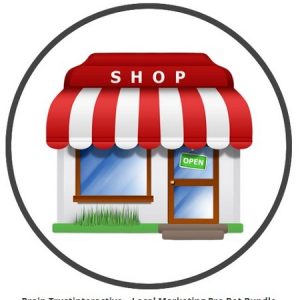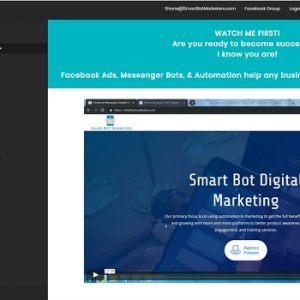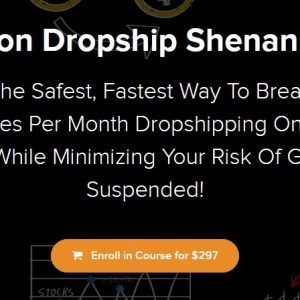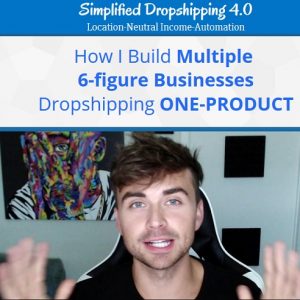The local SEO landscape is constantly shifting, demanding businesses to adapt and innovate in the digital realm. If you’re looking for an edge in this competitive arena, you need a robust and adaptable strategy. Look no further! Here you will learn the best practices to Steal Our Local SEO Client Strategy, a proven approach that has helped numerous businesses dominate their local markets.
Table of Contents
Steal Our Local SEO Client Strategy
The digital marketing landscape is in constant flux, and staying ahead of the curve requires a willingness to adapt and evolve. In an era dominated by artificial intelligence, it’s more crucial than ever to refine your approach to search engine optimization. Let’s delve into how we can adjust our local SEO client strategy to not just survive but thrive in this rapidly changing environment.
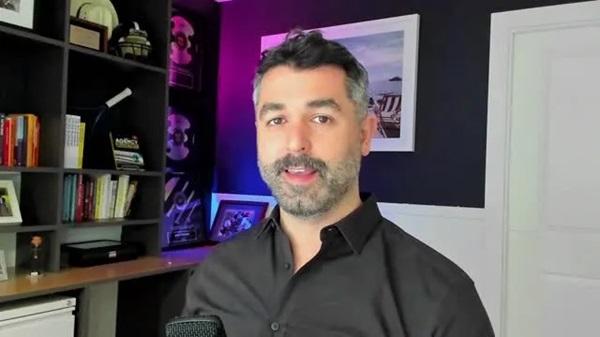
This strategy is not a static set of rules, but an evolving framework that embraces change. With each new algorithm update, technological advancement, or shift in user behavior, we calibrate our approach to ensure our clients remain at the forefront of their industries. Our goal is not just to increase visibility, but to cultivate a robust online presence that drives engagement, conversions, and ultimately, business growth. The following outlines will highlight our strategies, methodologies, and our commitment to staying ahead in the dynamic world of SEO.
The Ever-Shifting SEO Landscape
The SEO industry has seen its fair share of seismic shifts over the past decade and a half. From major Google algorithm updates like Penguin that penalized manipulative link-building practices, to the rise of social media platforms like TikTok, which are now siphoning off search traffic, marketers have had to constantly reinvent their strategies. The reality is that the landscape we operate in is forever changing, and we must be prepared to change with it.
For example, the Penguin update was a monumental shift that forced SEO professionals to prioritize quality over quantity in content and link building. Before that, the aim was to rank for as many keywords as possible, no matter how relevant they were to your business.
Similarly, the introduction of mobile-first indexing acknowledged the growing importance of mobile devices in search and prompted a shift towards prioritizing the mobile user experience. This has completely changed the way we create content, manage our websites, and design our funnels. Today, with AI’s burgeoning influence, we’re standing on the precipice of another significant transformation, one that challenges the very core of how we approach online visibility.
Embracing the AI Revolution
Artificial intelligence is no longer a futuristic concept; it’s a present reality that’s reshaping how we interact with technology and information. In the realm of SEO, AI’s impact is twofold: it’s automating tasks like content creation, and it’s fundamentally altering how people search for and discover content. While tools like ChatGPT can generate articles and blog posts, the potential for AI-powered search engines to directly answer user queries could significantly reduce organic traffic to websites. How we react to this changes will likely shape the future of our industry.
This potential for reduced traffic, also known as “cannibalization,” is a valid concern. However, it’s important to remember that technological advancements often bring new opportunities alongside challenges. Consider the rise of voice search, which initially seemed like a threat but has since become another avenue for businesses to connect with their audience.
Similarly, the advent of AI search means that we need to understand how these tools prioritize information and adapt our strategies to align with these new parameters. It’s not about trying to beat the system; it’s about evolving with it to give the people what they’re looking for.
A Mindset for Success in the AI Age
Navigating this changing landscape requires a shift in mindset. Instead of viewing AI as a threat, we should see it as an opportunity to refine our strategies and create more valuable experiences for users. The goal is to be the best solution to a specific problem, so users will always have the option. As Marie Haynes aptly pointed out, “With every great change comes greater opportunity.” This isn’t just a feel-good sentiment; it’s a practical approach to navigating the complexities of the digital world.
Instead of resisting change, we need to embrace it. This means staying informed about the latest AI developments, understanding how they’re impacting search behavior, and actively experimenting with new approaches. It’s about being proactive rather than reactive, and viewing challenges as stepping stones to innovation.
When you think about it this way, things don’t seem so daunting. We can’t predict the future, but we can prepare for it the best way possible. Today, it’s AI influencing our industry. Tomorrow, it will be something totally different. Be ready.
Ryan Stewart
Ryan Stewart has been at the forefront of the marketing and SEO industry for nearly 15 years, witnessing and adapting to numerous pivotal changes. He has seen the industry through major updates and navigated through external threats and emerging technologies. Today, Ryan finds himself and his team delving deep into the implications of AI for the future of search.
With a wealth of experience and a forward-thinking approach, he is uniquely positioned to guide businesses through the current landscape and beyond. He is not just an observer but an active participant in the evolution of SEO, constantly testing, refining, and sharing his insights with the wider community.
The Experience of 15 Years
Having spent almost a decade and a half in the marketing and SEO industry, one develops a keen sense of pattern recognition. I’ve seen trends come and go, and I’ve witnessed firsthand the dramatic impact of major Google updates like Penguin. These experiences have instilled in me a deep understanding of the industry’s dynamics and the importance of adaptability. The reality is, nothing stays the same and those that want to survive must adapt.
The Penguin update, for instance, was a watershed moment that forced a paradigm shift in link-building practices. Prior to Penguin, the focus was often on quantity over quality, with websites employing black-hat tactics to manipulate search rankings. Penguin changed all that, penalizing sites with spammy backlinks and rewarding those that focused on building a natural, authoritative backlink profile.
This was a tough lesson for many, but it ultimately led to a healthier, more user-centric search ecosystem. It was a very tough time for companies that depended on this type of link building, but it made the space much more honest as a whole. It wasn’t the last major change to the industry, not by a long shot.
Adapting to External Threats
Beyond Google’s algorithm updates, the rise of social media platforms like TikTok has presented another significant challenge (and opportunity) for the SEO industry. TikTok, with its short-form video content and vast user base, has become a major player in the attention economy, drawing users away from traditional search engines. It was only a matter of time, really, before another large platform emerged that would begin stealing our searches.
This shift in user behavior requires a reevaluation of our content strategies. Instead of solely focusing on optimizing for search engines, we need to consider how our content can be adapted and distributed across platforms like TikTok.
This means understanding the nuances of each platform, including its audience demographics, content formats, and engagement patterns. It’s about meeting users where they are and delivering content that resonates with their preferences. This is a massive change in philosophy for a lot of SEOs. Those that are stuck in their old ways will be left behind.
Navigating the AI Frontier
The emergence of AI is arguably the most significant development in the SEO industry in recent years. It’s changing how we create content, how we optimize for search, and even how information is surfaced to users.
While AI-powered tools can streamline tasks like content creation, the potential for AI-driven search engines to directly answer user queries raises concerns about organic traffic. The goal of every company is to make things easier for their users. AI is poised to revolutionize a lot of industries, not just search.
However, it’s crucial to remember that every technological advancement brings new opportunities. Just as the rise of mobile search led to the development of mobile-first indexing and a focus on mobile user experience, the advent of AI search presents a chance to rethink our approach to SEO.
It’s about understanding how these AI tools prioritize information, adapting our content to align with these new parameters, and creating experiences that are valuable and engaging for users. We can’t just think about search engines as the end all be all anymore. What we’re seeing happen is a lot of these platforms are looking for the same results. This is something that will continue to change along the way as well, so stay tuned.
Conclusion
The SEO industry is at a critical juncture, facing both challenges and opportunities presented by the rise of artificial intelligence. While the future remains uncertain, one thing is clear: adaptability and a proactive mindset are essential for success. By embracing change, staying informed about the latest AI developments, and focusing on creating valuable user experiences, we can navigate this evolving landscape and thrive in the age of AI.
As Ryan Stewart has demonstrated throughout his 15 years in the industry, a willingness to learn, adapt, and innovate is the key to staying ahead of the curve. By embracing these principles and leveraging the insights shared in this article, you can position your business for continued success in the dynamic world of local SEO.
Remember, every change brings with it a new set of opportunities. Our job as marketers and business owners is to identify and capitalize on these opportunities, ensuring our strategies are not just reactive but proactive and forward-thinking.
Sales Page:_https://www.linkedin.com/pulse/adjusting-your-seo-strategy-thrive-age-ai-ryan-stewart
Related products
Marketing




